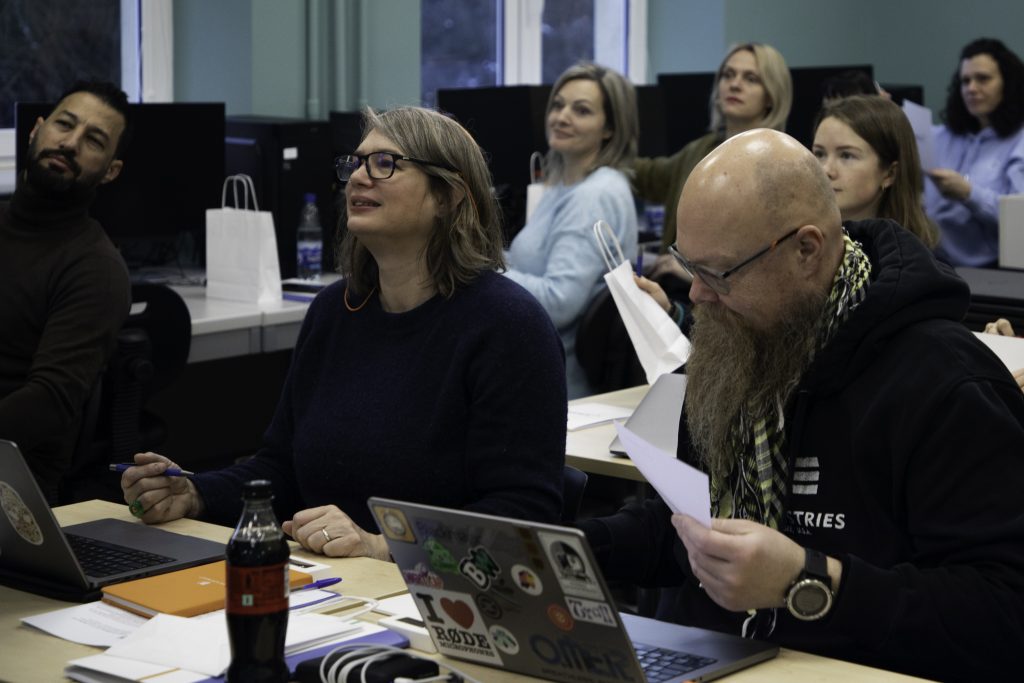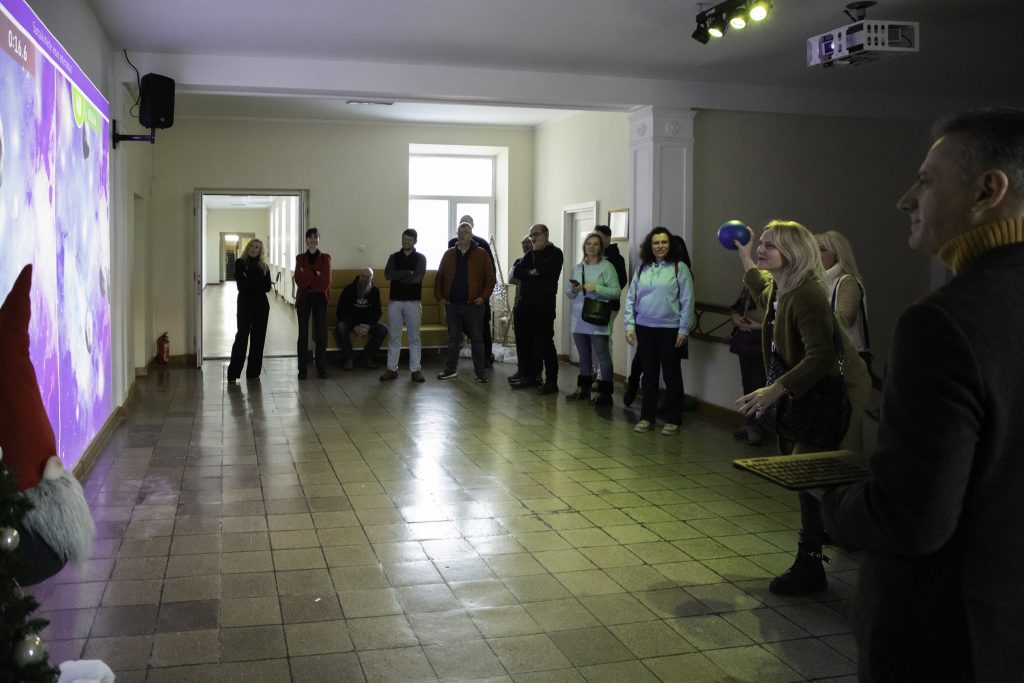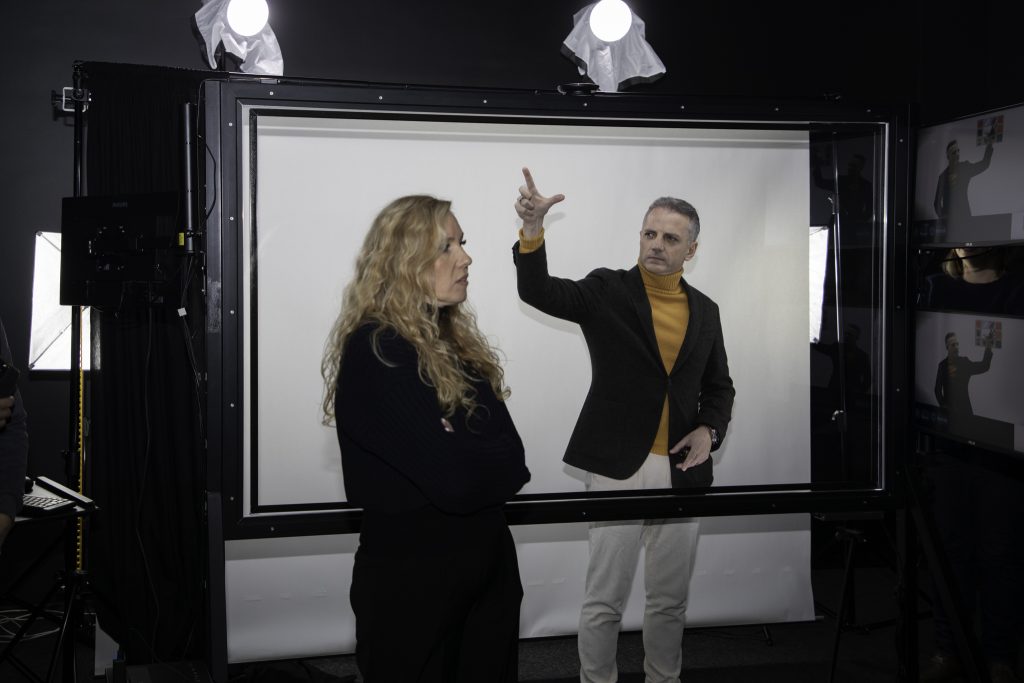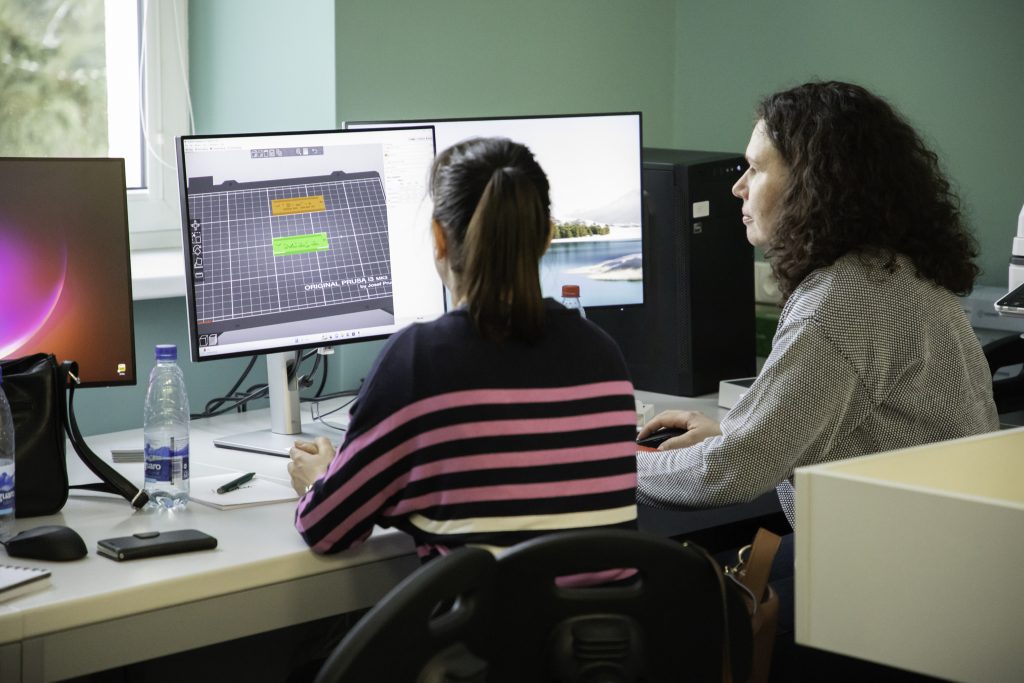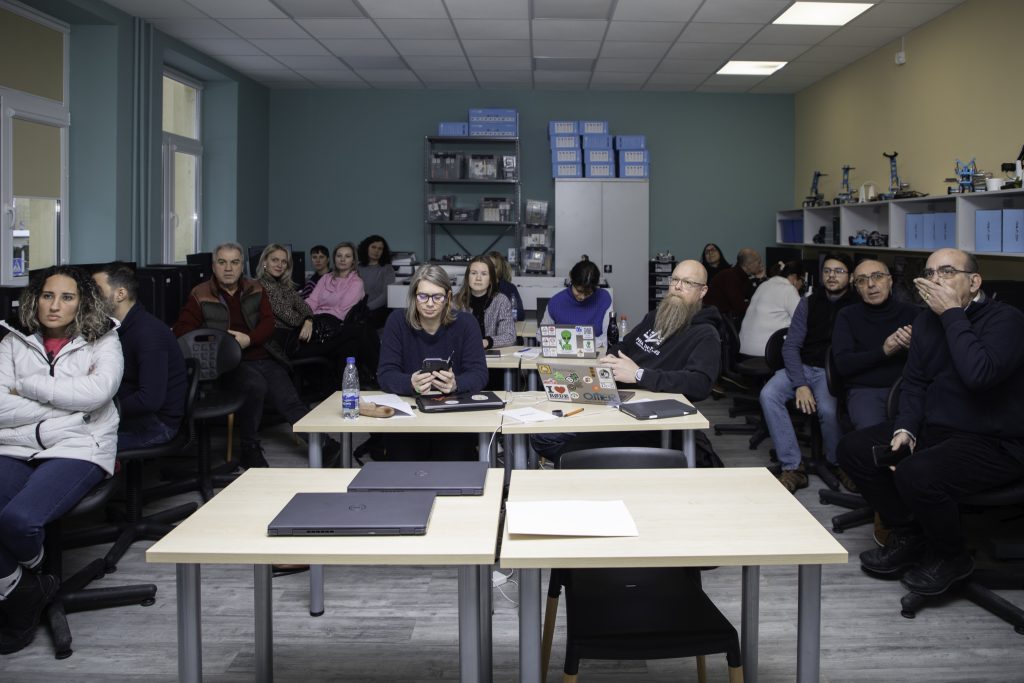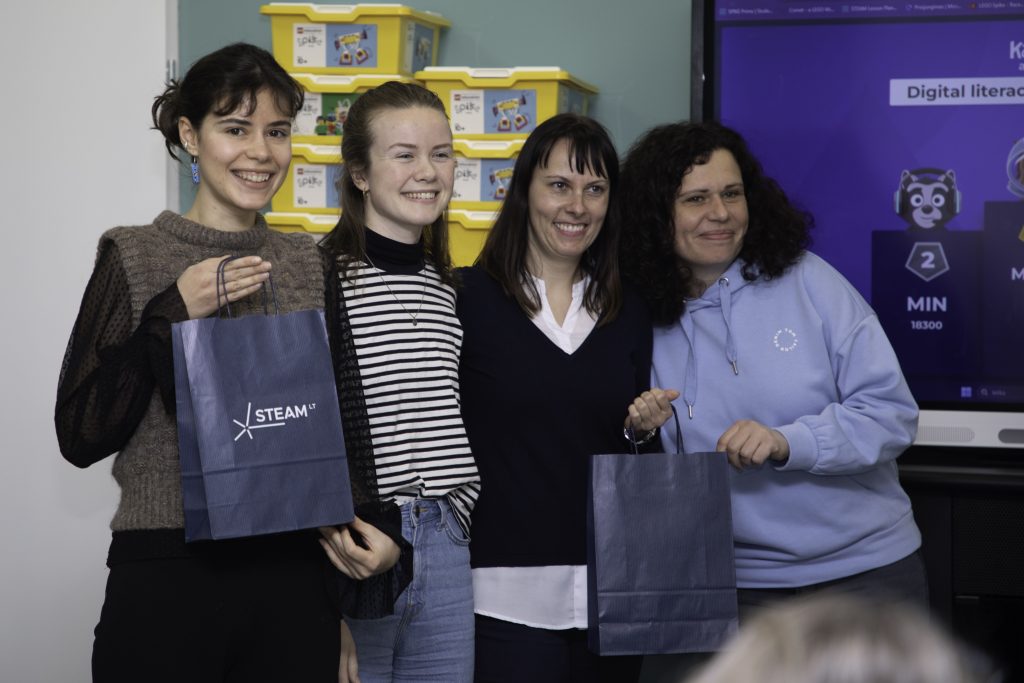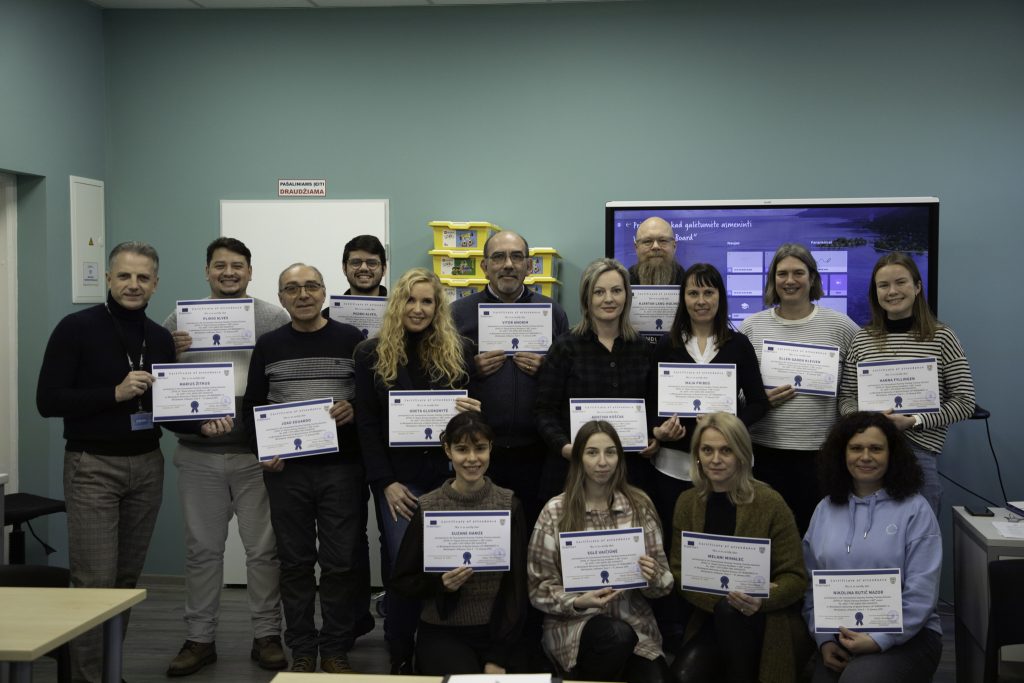On 08-01-2024 / 12-01-2024 a delegation from the Erasmus+ project “Digital Literacy-Readiness 4 ALL” visited Marijampole Higher Education Institution. During the whole week, the Erasmus+ project team of Marijampole Higher Education Institution provided training for teachers from Portugal, Italy, Turkey, Croatia and Norway.
The working week started with a tour of the laboratories of the Marijampole Regional STEAM Open Access Centre, the interactive TV studio and other areas of the Institution’s study base. This was followed by the “Introduction to Programming” and “Game Development” training sessions, during which the participants were convinced that everyone can program. The sessions, which were complemented by creative and interactive activities, inspired the partners to apply the knowledge they had acquired in their schools.
On Tuesday, there was a training session on 3D printers and 3D modelling using Tinkercad. Participants learnt the basic tools of the software, tested them by creating key chains and trying to replicate images from nature. They learnt about 3D printers, their types and principles of operation and printed their keychains in the STEAM Centre’s FabLab. On Wednesday, the guests took part in the Industry 4.0 (Fourth Industrial Revolution) training, starting with the Imagine 4.0 activity. Here, teachers had to draw and present different compositions that represented all the industrial revolutions from 0.0 to 5.0. Later, teachers were introduced to the main 4.0 technologies, recalling earlier 3D printing technologies, programmable robots and automation tools. They also practically tested cloud and artificial intelligence tools, virtual and augmented reality goggles, and modelled smart homes using IoT concepts.
On Thursday, the project participants learned about the use of Lego educational and programmable building blocks in educational activities to enhance students’ digital skills. During the hands-on activities, the project participants created a smart city with the help of robots and programmed robots for autonomous movement in the city of the future. Finally, examples of how Scratch, Tinkercad and Minecraft can be integrated into different lessons were presented. The project ended with a Kahoot quiz on the week’s activities and the awarding of certificates. The next project meeting is scheduled for Norway, where teachers will continue to deepen their knowledge of 3D modelling and programming. We are delighted with the feedback and impressions shared by the participants of the international project about the very positive impression left by the study base of the high school and the very successful international training, which was led by a strong, competent team from Marijampole Higher Education Institution and the STEAM Centre.
